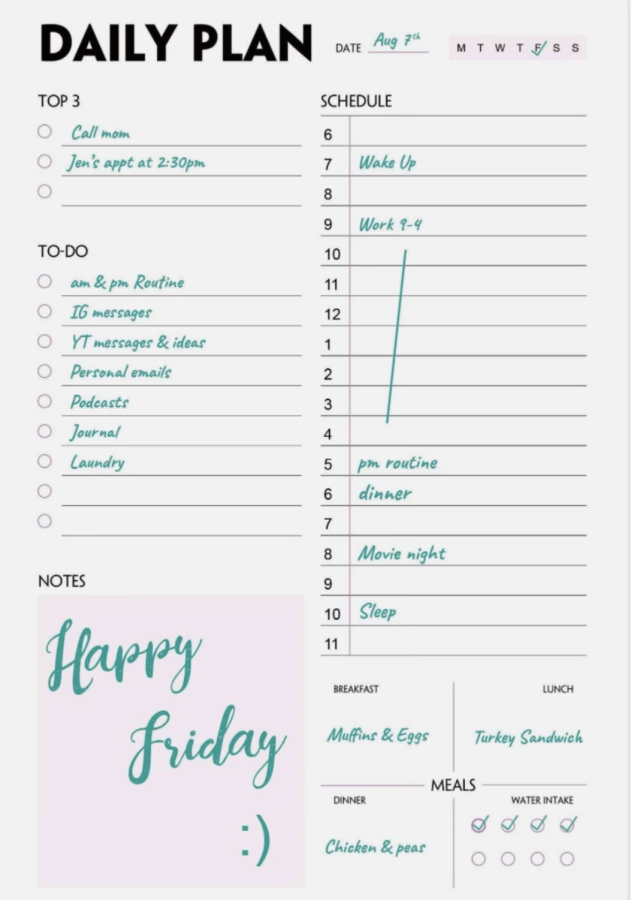A Guide to Making Second Semester Better Than the First
With the first semester of the school year coming to a close and second semester starting, it may be a difficult time for students. Whether a student may be dealing with stress from their workload, organizational difficulties, or balancing extra-curricular activities with school, everyone has a unique challenge they have to face this new semester. In this article, I am going to explore some tips and techniques on how to manage the workload and stress and hopefully conquer second-semester challenges!
A major key to success while navigating through a semester of difficult courses is organization. One trick that many students have found very helpful in keeping it all straight is creating a blank Google Sheet to enter everything in. The sheet can be sorted by due date and time, as well as color-coded for each class. It is a very simple but helpful tool to keep track of due dates and helps to prioritize assignments each day. The Google Sheet is simply one method or organization.
Another helpful tool is a planner. Junior Rayna Kushner leverages a daily planner. “I write everything in my planner, which is helpful to make sure I know what assignments I have and can get everything done in advance,” she shared. While Google Sheets are helpful for many, writing reminders down with a pen and paper can sometimes be the trick to organizing a to-do list.
Study methods are also essential to tackling the second semester. For me personally, a very helpful tip is to study in the format of the test itself. If the test is multiple choice, find practice tests to take. If it’s a foreign language speaking quiz, find a friend to quiz out loud. If the quiz is free response, write definitions over and over again. Although study methods are definitely important, actual study timing is equally as significant. It could be more effective to study for forty-five minutes each day for a week before an exam rather than six hours the day before. This is especially effective when studying includes memorization because a key factor in succeeding on a test is ensuring the memory is sustained over time. By spreading out study time, memorization is sustained over time.
Beyond just organizing time and figuring out how to study for tests, students all struggle with the actual workload. There are many ways to cope with school stress, but one of the most helpful tips is to set aside time to relax and unwind. “If I have a lot of homework or studying to do, I’ll take breaks so I don’t overwhelm myself,” shares junior Logan Field. With seven hours of class each day, extracurriculars, and tons of homework on top of that, it can become hard to find time just to take a break, spend time with family or friends or just watch a favorite show. Relaxation is actually critical to a student’s school success as well as their health and well-being, but it can be hard to find a balance between relaxing and schoolwork. “I try to organize my days, so they aren’t super packed, and also take advantage of downtime during the school day to get work done,” Field also noted.
All the methods discussed in this article, along with existing helpful methods, should help to find that perfect formula for taking on the second semester. But still, each individual is unique, so try various strategies, and it will be easy to find the perfect fit!







